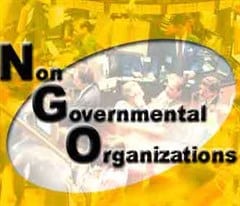Frank Furedi at Spiked Online has published one of the best pieces we have seen on the remarkable inability of American and Western diplomats, NGO employees, and others to see US foreign policy as those on the receiving end might see it.
In the toxic religion of “American exceptionalism” the key liturgical feature is no matter what is done to others by US policy it is only for their own good. The US knows best how to manage the affairs of others, and if you happen to be one of those “others” and disagree, well you simply hate America and are therefore “against us.”
How remarkable that George W. Bush’s bluster “either you are with us or you are with the terrorists” has become our national motto all these years later — even as the author of the global war aphorism remains an embarrassment in exile. More ironic even, those “sophisticates” who laughed at the inarticulate Bush now have adopted his core values as their own in the mad push to war with Russia.
Furedi here captures so very well the essence of this view as he speaks to US NGO employees at a conference in Budapest. Having worked with such NGOers in Budapest in another life, I can recall so very well that of which he speaks.
Furedi:
The self-deception of contemporary Western diplomacy can be most clearly seen in the casual way that it applies double standards in its assessments of global affairs. The naive, almost child-like self-delusion of the modern Western attitude to Russia was brought home to me last May during a visit to Budapest. Following a series of meetings on the role of young people in civil society, I had an opportunity to talk with a group of youngish Americans who were employed by US-based NGOs to work in Russia. During our chat, one NGO worker, from Seattle, said she was surprised to discover that some Russian officials treated her as if she were an ‘agent of a foreign power’. Several of her colleagues also expressed astonishment at the fact that they and their NGOs were treated by Russia as… well, what they really are: American organisations promoting American values in a foreign land.
When I voiced amazement at their reaction, and asked ‘Don’t you see that you are employed by a foreign organisation, and what’s more by one that is critical of your host country’s government?’, they simply could not see my point. When I asked, ‘How would the American government brand a Russian NGO that was promoting Greek Orthodox values on the streets New York or Chicago?’, I got no response. It was only after I asked what would be their government’s reaction if a group of Russian NGO operatives had financially and politically assisted the Occupy movement or the Tea Party that one of my interlocutors conceded that I might possibly have a point.
What my Budapest experience showed me was that the presumption of self-righteousness now runs so deep among those who promote Western values that even highly intelligent young people could not see that they were clearly applying double standards, where they think it is okay for Americans to promote American values in Russia, but not vice versa. Why do they think this? Because the double standard of modern diplomacy is built on an implicit assumption of moral inequality.
It is this assumption that allows Western leaders to lecture their foreign counterparts on what is and is not acceptable behaviour. Double-standard diplomacy allows one party to treat the other as if they are infants. Consider the casual manner in which American and EU politicians went to Kiev a few weeks back to demonstrate their solidarity with the protesters. Imagine what the reaction would have been in America and Britain if Putin or some other Russian politician had shown up over here at the time of Occupy or the English riots and declared support for the protesters/rioters. There would have been outrage. In double-standard diplomacy, however, with Russia treated like a child, leaders in the West think nothing of behaving in a way they would consider unacceptable if others did it.
Don’t miss the full article here.

